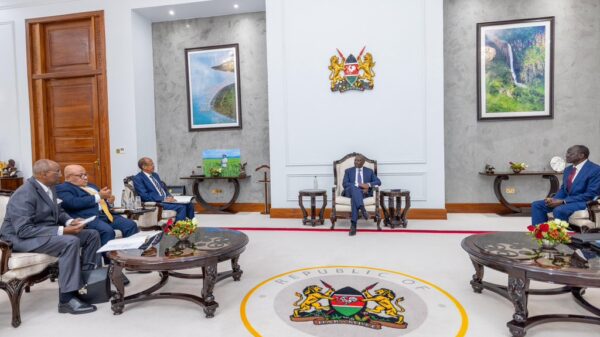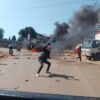PHNOM PENH, Mar 31 – Prosecutors Tuesday gave harrowing details of the torture and execution of thousands of Cambodians as they laid their case against the Khmer Rouge regime’s prison chief for the first time.
Inmates at the notorious jail run by Duch had their nails pulled out and electrodes attached to their genitals, while some were subjected to live autopsies or had the blood drained from them until they died, prosecutors said.
Only a handful of people are known to have survived Tuol Sleng prison, which is now a genocide museum lined with photographs of some of the more than 15,000 men, women and children who died there in the 1970s.
Prosecutors at Cambodia’s long-delayed UN-backed tribunal said Kaing Guek Eav — a former maths teacher also known as Duch — played a central role as chief of the security apparatus for the 1975-1979 Khmer Rouge regime.
"For 30 years, a whole generation of Cambodians have been struggling to get answers about their families’ fates," Cambodian co-prosecutor Chea Leang told the court, as Duch jotted notes in the dock.
"Today in this courtroom before the Cambodian people and the world, at long last this process begins and justice will be done."
During a brief recess, Tuol Sleng survivor Bou Meng told reporters video footage shown by prosecutors, which included a corpse chained to a bed, reminded him of how he lost his wife at the prison.
"I cannot forgive Duch because of my wife’s life. I want to beat him to death, but I respect the law and now is the time to use it," said Bou Meng, who was spared because his skills as an artist were deemed useful to the regime.
International co-prosecutor Robert Petit said that people detained at Tuol Sleng, also known as S21, had been tortured "under the accused’s direct orders and sometimes by his own hand."
"The policy was that no one could leave S21 alive," Petit told the court.
"Victims were beaten with rattan sticks and whips, electrocuted, had toenails and finger nails pulled out, were suffocated with plastic bags forcibly tied over their heads and were stripped naked and had their genitals electrocuted," Petit said.
"The accused has stated that beatings by a stick was used the most because other forms of torture took too much time."
Duch, 66, has denied personally torturing or executing prisoners but has taken responsibility for presiding over the prison in Phnom Penh. He is charged with crimes against humanity, war crimes, torture and premeditated murder.
Duch, who faces life in jail, said he acted under orders from superiors in the Khmer Rouge, which rose to power as a spin-off from the conflict in Vietnam and emptied Cambodia’s cities to take society back to a rural "Year Zero."
Up to two million people died during its nearly four years in power.
But Chea Leang contended that Duch himself played a central role, running the central prison and a nationwide network of 195 security centres, which systematically starved, tortured and executed hundreds of thousands of people.
"S21 formed an integral and indeed vital role in a widespread attack on the population of Cambodia. The accused’s crimes were part of this attack," she added.
"Prisoners would be tortured until they confessed to being enemies, implicating their friends, colleagues, and neighbours, creating a new list of traitors to be arrested, tortured and smashed," she said.
Khmer Rouge leader Pol Pot died under house arrest in 1998, and many in Cambodia believe the UN-sponsored tribunal is the last chance to bring those regime figures still alive to justice.
Duch himself is expected to address the court about his role and publicly ask forgiveness from Cambodians.
He became a born-again Christian during the 1990s and was arrested in 1999 after years in hiding.
The tribunal was formed in 2006 after nearly a decade of wrangling between the United Nations and Cambodian government, and has faced controversy over allegations of corruption and political interference.
The government of Prime Minister Hun Sen, himself a former Khmer Rouge fighter, has been accused of trying to protect the regime’s former figures from facing justice.
































